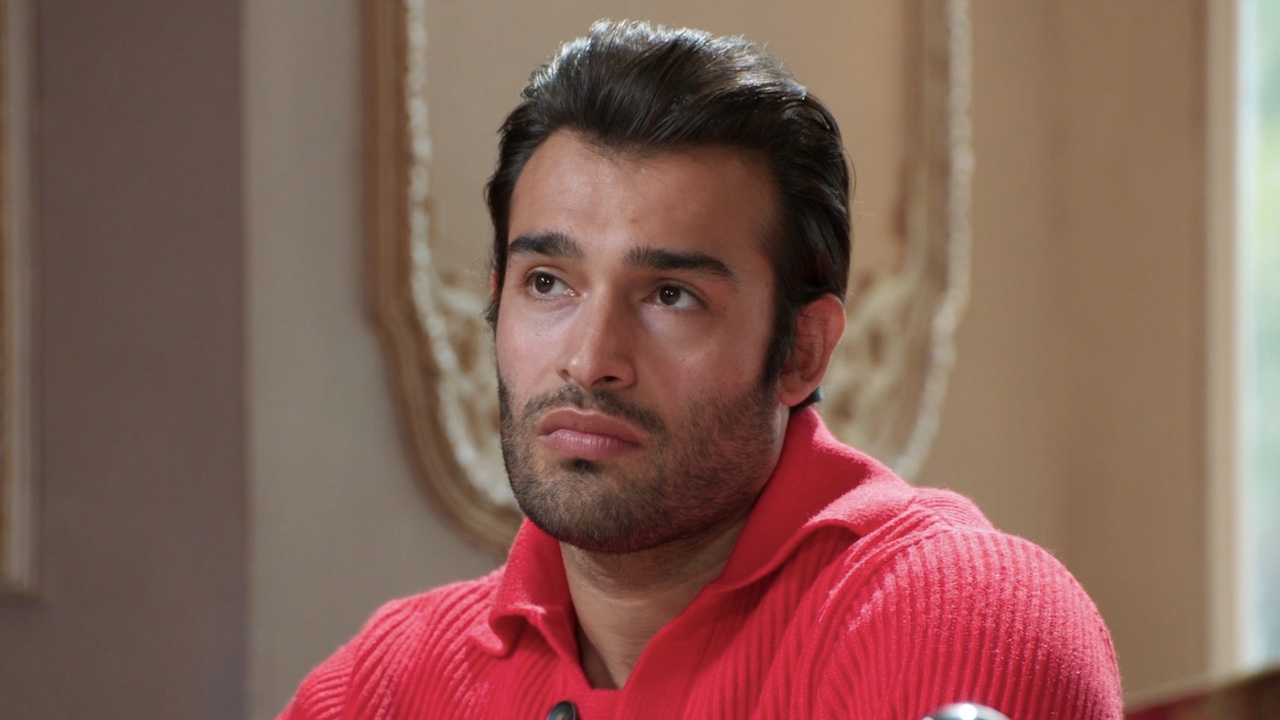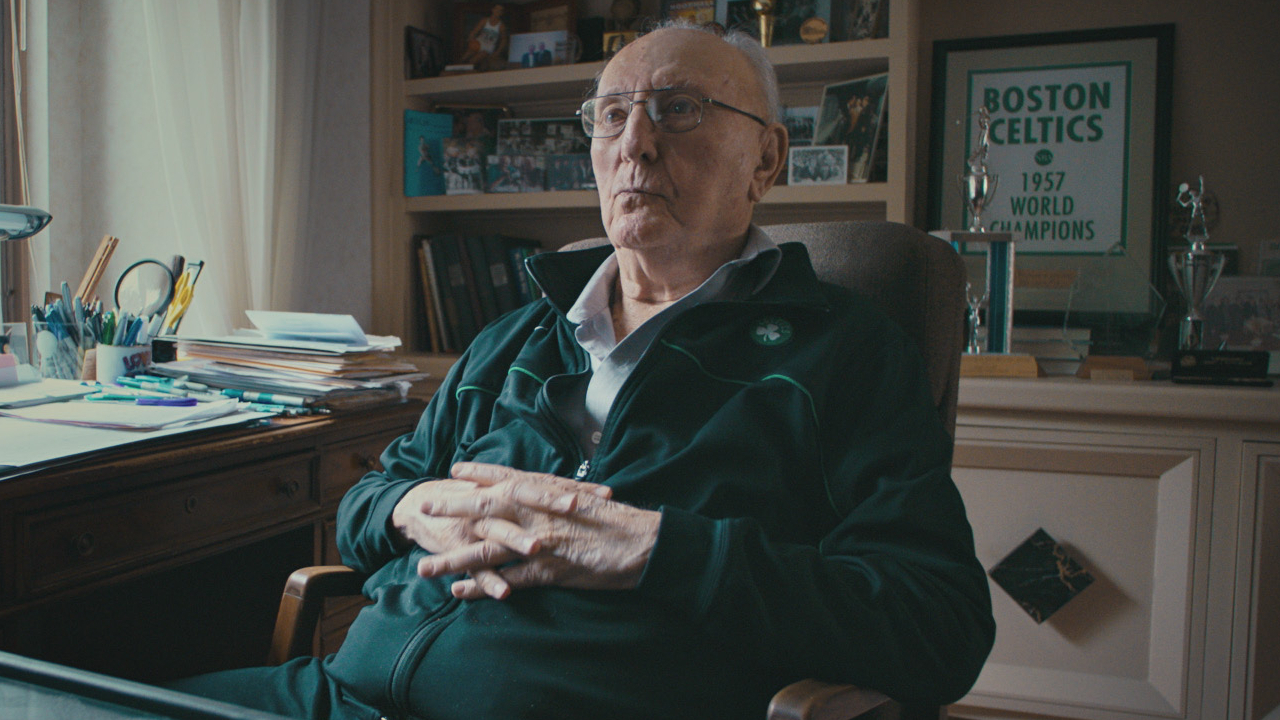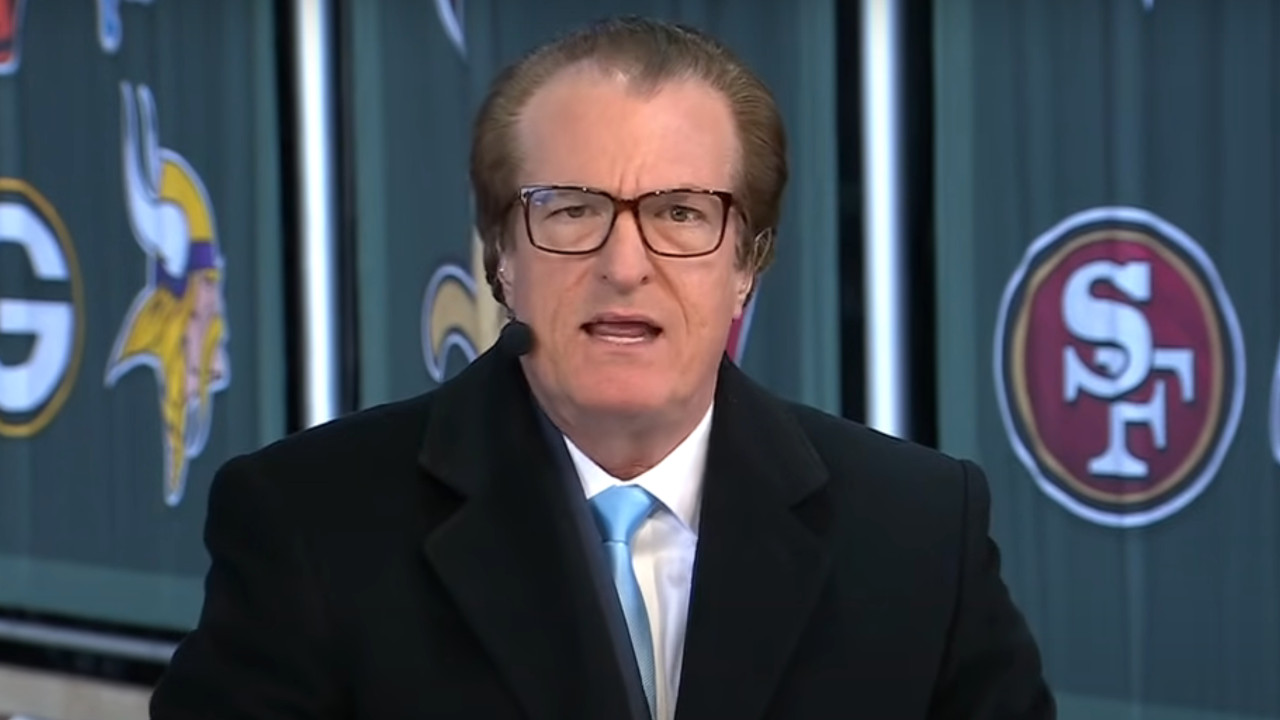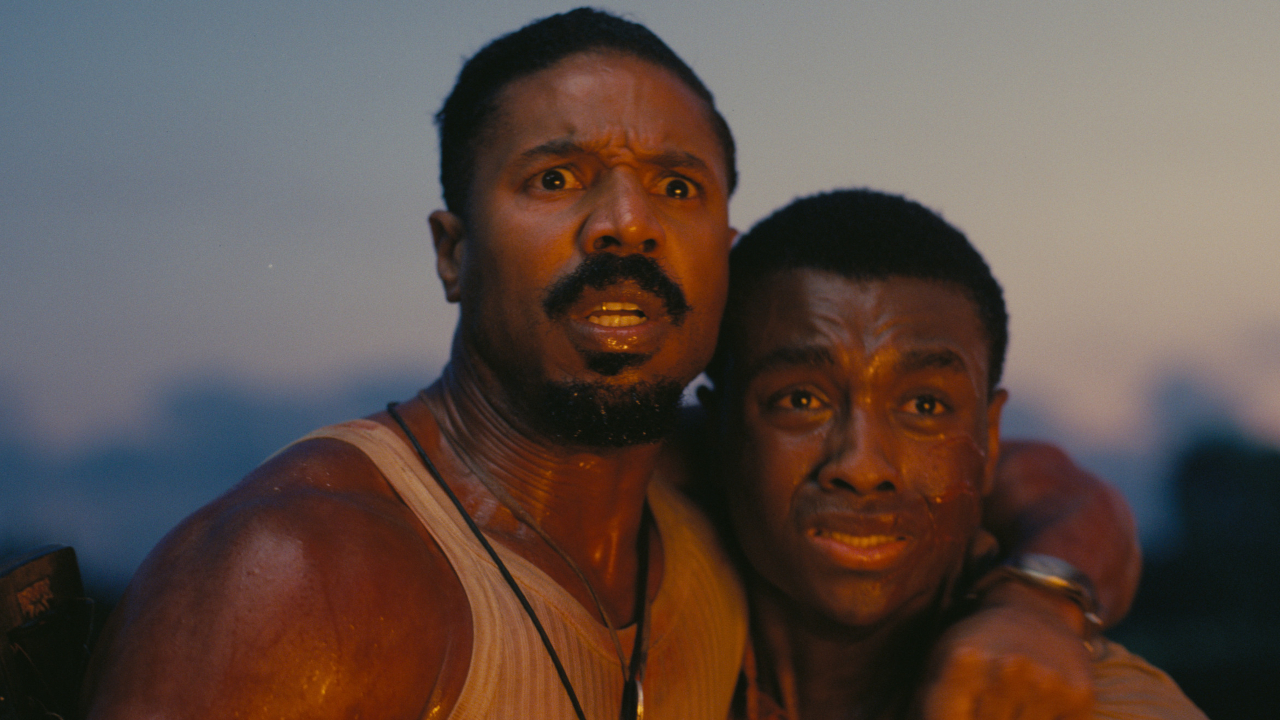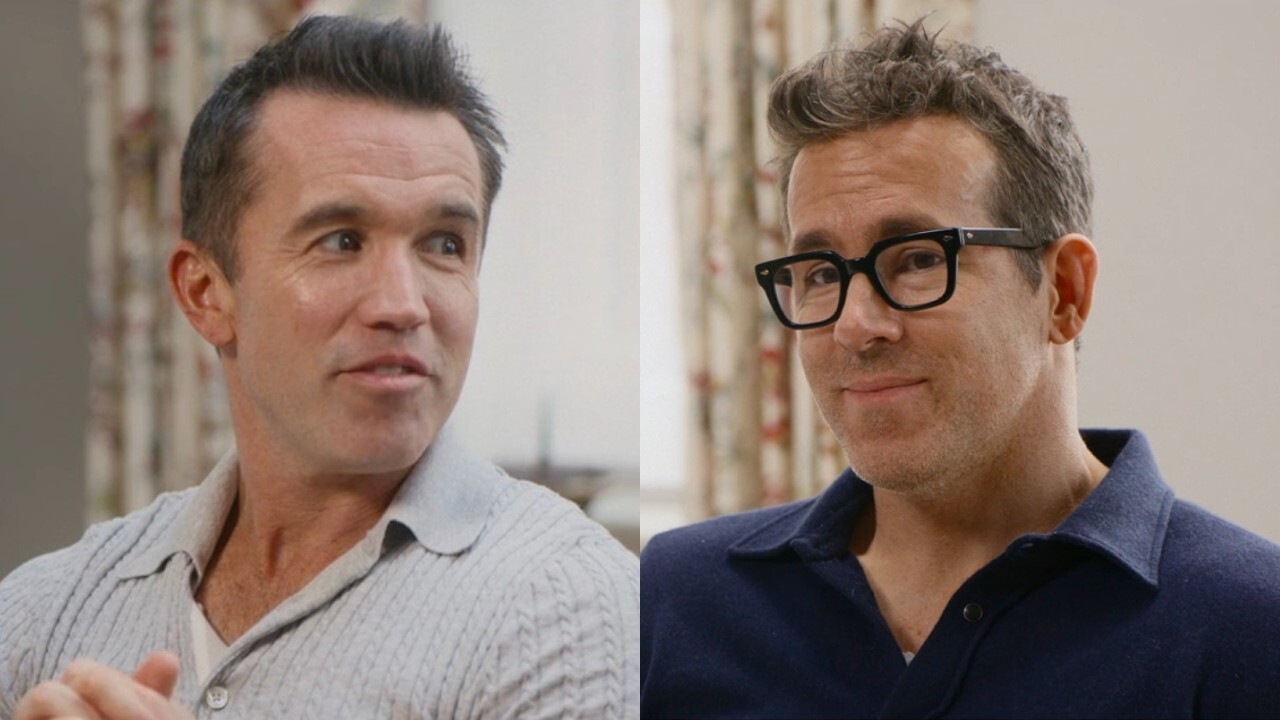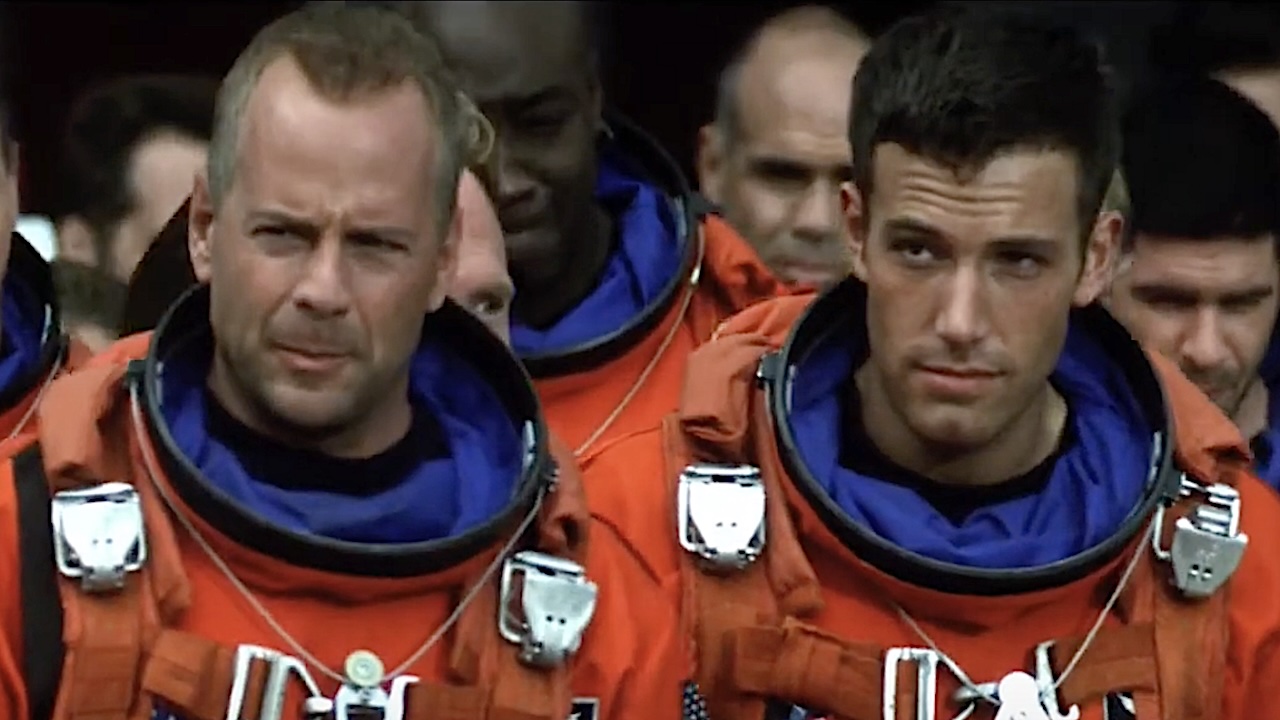Exclusive Interview: 50/50 Director Jonathan Levine

If you’re not already excited to see Jonathan Levine’s 50/50, you need to remedy that problem right now. Though the film won’t be released until September 30th, I was invited to go to a very early screening back in April and I was absolutely floored by it. Everything about it, from its blend of drama and humor to the performances by the entire cast, is stunning and last week I was given the chance to talk with the filmmaker on the phone about the upcoming release.
In the film Joseph Gordon-Levitt plays Adam, a young man living a happy life when a routine exam reveals that he has a rare form of cancer. Given only a 50% chance of survival, he has to tell his girlfriend, friends and family about his condition and finds his life completely change as a result.
Check out my interview with Jonathan Levine below in which he talks about sticking to the true story, getting Joseph Gordon-Levitt as a replacement for James McAvoy, and the project’s numerous title changes.
To start, it’s been established that this movie is based on a true story, and obviously elements of the story have been fictionalized a little bit, so I’m curious, when you were putting this together, at what point do you not want to strike too far from the truth? Especially with Will serving as the screenwriter and producer.
I think it’s sort of twofold. My last movie, to me, was very personal, so I feel like I have learned some of the benefits of telling a personal story and some of the pitfalls. To be honest, I think whenever it’s too personal, whenever you’re like, “No, no, no. Really she was wearing a red shirt,” or, “He was drinking a coke, not diet coke,” whenever you’re so detail-oriented about it, it kind of just, you can kind of get a little lost. I think the best thing to be cognizant of when you’re doing something like this is being true to the spirit of the truth, which, when you’re telling a story, is actually a lot more important than the actual truth. In fact, the actual truth, the things that actually happened in life, we found we often either, no one would believe it, it was almost too broad. The actual things that happened were almost too... and then other things were just too boring. So it is really, really important and I think Will did a great job of striking that balance between finding the spirit of the story you want to tell while not adhering so closely to the exact beat by beat outline of what happened. I think that extends all the way down the line. Joe from day one made it clear that he was not doing any sort of impression of Will, he was making his own character. It’s interesting sometimes, I think the truth can be very useful when you need it and I think it’s also a very important skill to learn when to throw it out. That said, nobody, the other thing that’s important too is to be very, very true to any kind of details of what it’s like to go through this and not shy away and be very kind of accurate with the medical side of things, all of that. That was very important too.
Just to bridge off of that, the element that I really love about this film, and by the way I really do love it. Throughout the entire thing, nothing about it feels forced or phony, the structure is completely invisible. It doesn’t feel like you’re watching a movie, you’re actually watching this guy Adam go through this experience. Was that really, as you were making this film, your intention? Was that your ultimate goal, would you say?
Yeah. It’s very important to me to be grounded in real. It was very important to me to have the filmmaking be invisible and not to ever feel like people were pushing you in any direction, like the filmmakers were manipulating the audience in any way. I thought Will wrote a fantastic script that was engaging and so true in a way that a lot of movies aren’t. I felt that my job was to kind of convey that in as truthful and non-manipulative a way possible. What you’re responding to is both the script and I think it’s also the performances. It’s very much a performance thing with these guys. All of these incredible actors really are the ones that take you on this journey. I think it’s, I think it was important to me to not let the filmmaking get in the way of that, just to let it unfold.
CINEMABLEND NEWSLETTER
Your Daily Blend of Entertainment News

To that same point, how much easier does it make it to have Seth Rogen basically playing himself in the film?
Well it’s interesting, I am a, yes. I think Seth kind of gets a bad rep as an actor, I think he’s actually an incredible actor. I think in Funny People he’s fantastic. In this movie he is kind of playing a version of himself, but that doesn’t make it any less remarkable that he can come up with the most ridiculously funny stuff five straight takes, five different times, and it doesn’t make it easier having him play himself. What makes it easier is the fact that he’s really fucking funny and you can relax. As a director, I never have to be like, oh my god, is it working? Because I know it’s working because I’m sitting at the monitor laughing my ass off. It does take, in a movie that does have a high degree of difficulty for all the people involved, it does take a lot of pressure off. Everything in it, he just puts it on his back and tries it. And Joe, to his credit, reacts as any friend in real life would. He’s reacting. He’s not driving the scene, and he’s comfortable not driving the scene. I think his character wouldn’t be driving the scene until we reach the third act where he actually does learn to take control.
You mention that the film had a high degree of difficulty, why would you say that?
I think it’s really hard any time you’re trying to do something a little unique in film. I think it’s really, really hard to get that right. Tonally it’s really hard, it’s hard for the actors, all of whom are playing flawed people. I think all of us, we all had a lot of confidence in this movie because we could look around and see the people involved and be very confident that we were in good hands, we could lean on each other.
Going off that idea, obviously there’s always going to be pressure on a movie set, but when you have the guy who actually went though it serving as executive producer and writer, you have both Evan and Seth serving as producers, does that increase the pressure because you feel like you’d let them down if it doesn’t turn out as you hoped?
Not really. They’re pretty cool. We all get along really well, we were friends. That happened very quickly. We really clicked very quickly. Seth and Evan create the most collaborative environment possible. Part of creating a collaborative environment is not to work from a place of fear. You’re always, as a director, you’re always working from, the biggest motivator is, “What if I fuck this up?” that’s always the biggest motivator. But that said, in your day-to-day decisions, it’s much easier to kind of be liberated from that, and no, there was no one ever, everyone kind of had the attitude, and I think it’s the attitude Evan must have learned from all of his work with Apatow of, “We are going to do everything we can to make this the best possible. It’s all of our responsibilities.” Will was on the set every day, and he was on the set everyday not just to be a resource but to continue to treat things as things were evolving, because that’s kind of the way those guys process works. I adopted it and really loved it.

How much did the script and the story change since the first draft of the final cut?
From the first draft of the final cut was probably a lot. From the draft that I started with, which was about six months before we started shooting, maybe less, I’d say some dialogue changed and some of the arcs changed a little bit, but the vast majority of it is intact. It’s very funny, there’ll be a scene with Joe and Seth in a coffee shop and they’ll be talking about getting laid, but it will be a totally different run of jokes. And Seth will do something else, and he will change the scene entirely, but the intention is still the same and the structure is still the same, but the scene has just kind of taken on a new life from being changed in the moment. I think that also contributes to the naturalism of the performances.
On that note, I was wondering if you could talk a bit about your pacing when it comes to being a director. How fast do you like to work? When you’re shooting, do you like a lot of coverage? Do you try to get multiple takes on dialogue? Do you let the actors improvise a lot? Could you just talk about your style a bit?
Yeah. Everyone always had the opportunity to improvise a little bit. Everyone knew that they could do essentially whatever they wanted within the world of the scene. There were definitely, I would get at least half of he scenes, no one did that. That’s essentially because Will wrote them perfectly. The other half, not that Will didn’t write them perfectly, there was just room for variation, room for improvisation on the day. It was important for me to create an environment where everyone feels free, once they’ve learned their character, once they’ve been cast, everyone feels free to kind of do their own thing. I think it really contributes to a creatively vibrant set. So we would probably do the first take as is, and then beyond that, we would do whatever kind of direction the actors took it. In between takes, I would either say, “It wasn’t that funny,” or, “Wow, that was awesome, pursue this” or, “Hey, remember that thing we did in rehearsal, try that.” Whenever you’re doing that kind of improvisation, you have to cover it, you have to cover the shit out of it, you just do. You have no choice. So it’s not always the most aesthetically fulling way to shoot something, but again, it’s actor-driven kind of thing, and that’s the best way to get the performances. So that’s what we did. As far as my style, I think I try to be pretty fast just because that’s the world I came from. You don’t always have that much time and you don’t always have that many days. You definitely never have enough money. But you know, when you’re doing stuff like that, it actually does go pretty fast because it’s just two people talking, there’s no explosions or anything. It’s cool.

I do want to also talk about Joeseph Gordon-Levitt a little bit because his performance is actually astonishing. I guess, just for starters, I know that originally James McAvoy was attached to play Adam but had to drop out, so from the get go, what was the process of getting Gordon-Levitt to star?
Well we were, it was, James unfortunately had to leave because of family obligations, a family emergency. So essentially, we needed someone quickly. It’s not a big budget movie, you can’t really afford to have everyone sitting around waiting for someone. So we all loved the idea of Joe, we all loved him as an actor, so we got it to him. He liked it, luckily, he came up to my office where Seth and I were hanging out and we gave him the hard shell, which was convincing him we were cool people. He had already responded to the script, and then he just jumped right in. It wasn’t more than a couple of weeks later that we were shooting. So the really, really remarkable thing about it is to me, just how much he was able to do in that time. And how incredibly attuned he was to the character. I just thought it was amazing what he was able to do with that little prep time. Of course, we started rehearsing right away. We got him into Cancer Survivors in Vancouver, who were gracious enough to talk to him about their experience. But yeah, to be able to come in and so quickly deliver a performance like that, which is a performance that you would think someone has been preparing a lifetime for, is incredible.
I’m also curious about the title, because 50/50, it was originally called I’m With Cancer and Live With It, why were there so many title changes? Obviously 50/50 relates to the percentage, his chances, but how did you settle on the original title and why so many changes?
Well I’m With Cancer was the title Will wrote that was on the first page of the script. So we immediately, that’s the way that you think of the movie, with that title. I think it was a clever title but I hated it because I don’t think anyone would ever see a movie called that. Part of the reason we’re making it is for as many people to see as possible, and we’re really proud of it, and I think it would be a shame if something as silly as a title were to keep people away. That was the first thing. It cannot turn people off, the title. So then you’re kind of in a world of stuff that’s a little more generic, a lot easier to kind of evaluate negatively, but at the same time, you’re in a world of things that could be Nancy Myers movies or they could be our movie. It’s just the nature of the beast, it’s definitely a trade I’m willing to make, and I think within that world, I think 50/50 is at least kind of, both clever and kind of stable and at least feels cool to me. Some of the other stuff we were dealing with did not feel that way. So I’m happy with it, but it was, the reason for changing the title so much is because we wanted a title that drew people in and did not push people away, and with a movie like this, we’ve already established that it’s really hard, you want the title to be appealing because you want people to know that it’s going to be a positive, uplifting experience, just because you want people to see it.

I guess also, from an advertising angle, I’m also curious just because there was also a time where this was kind of known as the “Untitled Cancer Movie” and the movie does definitely handle tone, just in terms of balancing the drama and the comedy, so I’m curious, when you’re selling this, do you feel like you’re selling it as a comedy, do you feel like you’re selling it as a drama? How do you present the film, would you say?
How do I present the film? To me the movie, to me, both comedy and drama don’t really do it justice, or not do it justice. I mean to me, to call it a comedy, you’re going to be surprised by the dramatic stuff. If you call it a drama, you’re going to be shocked at how funny it is. To me the movie is funnier than a lot of the comedies I saw this summer that were supposed to be comedies. So it’s, but I do think calling it a comedy is a little bit of a misnomer because it does go to such a substantive place. For me, I don’t think of it is either/or, I think of it as, kind of I think about the movies that we tried to follow in the footsteps of. The Hal Ashby movies, the James Brooks movies, the Cameron Crowe movies, all of which I think just have that balance of tone that kind of captures what life is like. So I wish there were a name for a genre like that. Unfortunately there’s so few movies that do that. They’ve called it dramedy, but I think it’s that’s like Doogie Howser or something like that, or Ally McBeal. I think those are.
I do want to ask you about your upcoming, you have another upcoming project in addition to Warm Bodies in which you’re working with Will, Seth, and Evan again, called Jamaica. I’m curious, obviously you’re doing Warm Bodies first, but where are things in development for that project?
Will is just starting to write it and I’m hoping that as soon as we finish Warm Bodies that we’ll get to go to Jamaica and immerse ourselves in a very intensive research situation there. And maybe get a house and just stay there for a couple of years. No, you know, he’s, it’s a story based on a very funny personal experience of Will’s, and it’s a story that, I’ve long been fascinated with Jamaica, and I think it’s one of the greatest places I’ve ever been. I’ve been there a few times now and I look forward to going back. Hopefully it’s another kind of thing that has that tone of comedy and drama and substance. But I think it’s going to be really, really fun. I don’t know how I’m going to survive Jamaica with those guys.
You mention that it’s a kind of, I know the story is about his experience with his grandma. Can you talk about the plot in any more detail than that?
I don’t know man for some reason, I don’t think it’s like, no, I don’t see any reason to keep it a secret. For some reason all the press releases haven’t told the plot so I feel like I’m not supposed to tell the plot. It’s not like, you know, it’s not like DaVinci Code, it’s just a movie. I guess for some reason I’m not supposed to talk about it. I don’t know why. Maybe I am. But it’s just I haven’t seen it online so I’d feel like a douche if I was the first person to talk about it. But I will talk about it. Are you going to talk to Will?
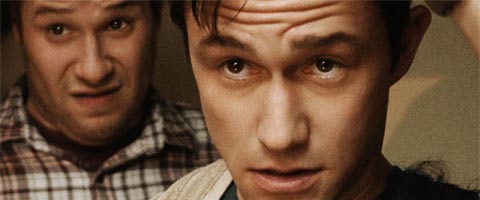
Maybe, I don’t know, maybe closer to the release date. Hopefully. I hope to.
I just don’t know, you never know what you’re supposed to say. Like what you’re going to get in trouble for. I’ll tell you anything else.
Alright, it did mention that it’s very funny but there’s the dramatic tones. In terms of...
It’s a trip Will took with his grandmother to Jamaica and his grandmother was at the time, suffering from Alzheimer’s. So there was, I think there were probably a lot of kind of really sad things and a lot of really amusing things too. It’s a coming-of-age story I think.
Well just to bring it back to 50/50 for a final question, I am curious, how personal is this story to you?
All I can say is I’ve dealt with cancer in my family. I think when you make a movie like this, you learn that it’s like this secret society, until you know about it you don’t know about it, but then once you do, you recognize that the whole world is impacted by it. It’s actually deeply personal to me. It’s actually deeply personal to me, and I think that the fact that it is personal to me made me feel a great deal of responsibility even as we were telling our dick jokes, to be respectful and true to the spirit of something that so many people have suffered from.

Eric Eisenberg is the Assistant Managing Editor at CinemaBlend. After graduating Boston University and earning a bachelor’s degree in journalism, he took a part-time job as a staff writer for CinemaBlend, and after six months was offered the opportunity to move to Los Angeles and take on a newly created West Coast Editor position. Over a decade later, he's continuing to advance his interests and expertise. In addition to conducting filmmaker interviews and contributing to the news and feature content of the site, Eric also oversees the Movie Reviews section, writes the the weekend box office report (published Sundays), and is the site's resident Stephen King expert. He has two King-related columns.
I've Always Wondered What It Would Have Been Like If Steve Rogers And Isaiah Bradley Shared A Scene Together In The MCU. Turns Out, Carly Lumbly Has Thought About Talking To Cap, Too
A Ghosts Star Shared His Hopes When It Comes To Ghosts Being 'Sucked Off,' And I'm Right There With Him

